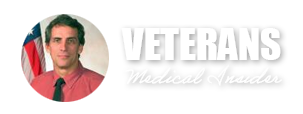Expert Witnesses and Congressional Hearings
Dr. Bash: Hey Jay, tell us about that. How’d that go? You had some expert witnesses or something?
Jay: They had several folks come in. They had a lot of VA undersecretaries. I didn’t know VA had so many undersecretaries; they have a bunch of them. Then, of course, the veterans’ organizations came in. Those guys love to testify with their little hats and stuff. It’s basically a big dog and pony show.
What gets me, though, is when there’s an issue in the congressional committees and hearings, you can tell who’s against an item and who’s for it. The ones against it will try to delay because they know there’s only a two-year window to work with. Once that two years is up, the new Congress comes in, and they start from scratch. That’s why it takes four to eight years to get something done.
Dr. Bash: That makes sense. I’ve had to sit in on a lot of those hearings. I’ve watched those fellas with their hats giving testimony.
Jay: We have the same situation with a veterans’ coalition here. Congress comes in, and we have chats. All the veterans’ organizations come in with their issues, but no one’s on the same page. If they were on the same page, they could get more done.
Coast Guard Exposure Documentation
Dr. Bash: Bill, you were going to tell us about this Coast Guard thing you were going to inform us about. Can we get that on air here?
Bill: Yes, Dr. Bash found this. I didn’t even know it existed. It was from one of my patients’ files.
In December 2017, the Coast Guard issued a technical directive stating that people who served aboard Coast Guard cutters constructed prior to 1991 should have their medical records documented to demonstrate exposure to asbestos and lead. The directive included specific language to be added to the medical records, noting the permanent duty assignment on these cutters and the known presence of asbestos-containing material and lead dust.
Dr. Bash: Can this be generalized to other Navy ships built around that time and painted with the same paint?
Bill: No, this directive specifically addresses Coast Guard cutters. It doesn’t discuss other branches. However, the concept could potentially apply to other Navy ships if similar materials were used. The Navy used a lot of red lead paint for exposed metal surfaces on ships, which is lead-based.
Jay: I removed tons of asbestos from submarines and ships. My exposure would be easy to prove, but the VA denied my claim because I didn’t have asbestos cancer. I was just asking for regular x-rays to monitor the exposure.
Challenges in Medical Opinions and Claims
Dr. Bash: Speaking of medical opinions, I’ve had patients take my Nexus letters to CMP exams, and the VA examiner refused to look at them, saying it would confuse the issue. What should we do in such cases?
Bill: That might be a misinterpretation by the examiner. When seeking a medical opinion, the opinion must consider the prior record, not new evidence brought in at the exam. However, if the evidence is already in the file, it should be considered.
Dr. Bash: How do they weigh medical opinions? Can you describe some parameters?
Bill: The manual discusses factors such as the level of expertise, the accuracy of the review of evidence, and whether the opinion is well-supported. An opinion without a review of records isn’t very valuable. The absence of treatment records doesn’t necessarily mean the absence of a disability.
Dr. Bash: What happens when a rater disagrees with a CMP examiner?
Bill: The rater is not a doctor and cannot make a decision contrary to the doctor’s opinion without other evidence of equal or greater value. The rater can send it back to the doctor for clarification. If the doctor sticks with their decision, it becomes more challenging.
Using Lay Statements and Evidence in Appeals
Bill: Credible lay statements describing a history of symptoms are very important. The absence of medical records does not establish the absence of a disability, especially under combat conditions. This principle applies to all veterans, not just those in combat.
Dr. Bash: Thank you all for listening. That ends this show. Now I’m going to zoom off.
